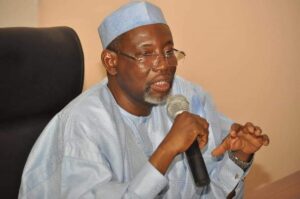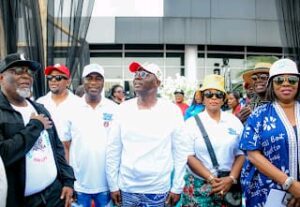

Experts forecast indigenous dominance in Nigerian Oil and Gas future, advocate need for effective partnerships
…How we rebranded, got 200% production growth with partners — NNPC
…Lack of guidelines, political connections hurting industry — AA holdings Chair
By Sodiq Adelakun
As the Nigerian oil and gas industry navigates the challenges of exit, divestments, and new players, a panel of experts has shed light on the future of the sector in the hands of indigenous players.
In a programme organised by Harvard Business School on Thursday themed “Exit, Divestments and New Players: The future of Nigerian Oil& Gas industry in the hands of indigenous players,” Austin Avuru, Executive Chairman and Founder of AA Holdings, Meyiwa Eyesan, Vice President Upstream NNPC, Laying Fatona, Executive Chairman of ND Western Nigeria Limited, and a representative of the Independent Petroleum Producers Group (IPPC) Alex Osho shared their insights on the opportunities and challenges facing local players in the industry.
The Nigerian National Petroleum Corporation (NNPC) has rebranded and refocused its operations to prioritise responsibility, safety, and value delivery to shareholders.
According to the Vice President Upstream NNPC, Meyiwa Eyesan, the corporation has made significant strides in the last year, with some partners increasing their production by almost 200 percent.
This achievement is attributed to the company’s revised operating philosophy, which incorporates lessons from the past to ensure sustainable and responsible operations.
She said, “There is all sense of responsibility that the NNPC of today, the NNPC limited of today, the rebranded NNPC, is totally re-focused and re-positioned to operate responsibly, safely and also to deliver value to our shareholders.
“We have partners sitting here today who in the last one year have grown their production by almost 200 percent, that is no small thing. And that is because we have re-visioned our pathway and I believe that we are on course working together.
“So for NNPC, we are taking learnings from yesterday and we’ve incorporated this into a new operating philosophy to ensure that we operate reasonably, sustainably and ensure that we deliver value to our shareholders.”
Also, Executive Chairman and founder AA holdings, Austin Avuru, blamed the current state of affairs on a lack of guidelines and defined processes, which has led to a decline in production and a focus on political connections over capacity.
But he also offered a roadmap for the future, with a possible 3.0 million barrels of oil per day (mmboepd) and 10 billion cubic feet of gas per day (bcfd) production target achievable with the right regulatory framework and partnerships.
Meanwhile, Executive Chairman of ND Western Nigeria Limited, Layi Fatona, has highlighted the significant amount of capital available in Nigeria, emphasising the need for it to be channeled into the right areas.
Speaking at a recent industry event, Fatona noted that the success of a few local players has sparked a scramble to raise money and invest in the sector, particularly in the development of marginal fields.
Fatona shared his company’s experience, raising $600 million from Nigerian banks, including GT Bank, to fund their operations. He emphasised that this shift in local investment culture is a positive development for the industry.
According to Fatona, “There’s a lot of capital in this country, and I think I want people, whether you like it or not, just to accept that fundamental principle. The question is, will the Nigerian capital that is funding all these powers that are being built, be focused and dedicated to the right channel?
“How did we raise money to bring the value to production? We raised six million dollars, and I remember anybody who looked decent, who walked across the streets on festival road.
“Now, I think given the successes of a few, is scramble to raise money and to put money in the new mining fields of heighten. And that’s why you have about two or three or four, even six entities going for the development of one single marginal field.
“So the culture of putting money locally is changing. Now, let’s talk about big money. So Austin raised 300 and something million dollars. We raised 600 million dollars from Nigerian banks. G .T. Bank stood completely behind us, but it wasn’t the principle that they think they can trust this people,” he added.
In the same vein, representing the Independent Petroleum Producers Group (IPPC), Alex Osho noted a significant shift in the perspective of global banks towards financing fossil fuels over the past decade.
Speaking at the event, Osho emphasised that regional banks, specialised funds, and family offices are now playing a more crucial role in financing energy projects.
Osho mentioned the proposed Africa Energy Bank as an example of this shift, highlighting the need for Nigeria to position itself as an attractive destination for investment.
He stressed that accessing $35 billion in funding will require a change in perspective, focusing on identifying the right projects that can attract this type of capital.




